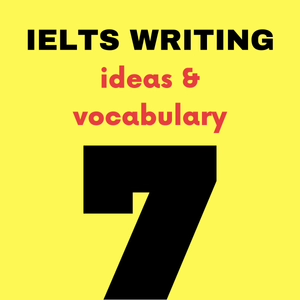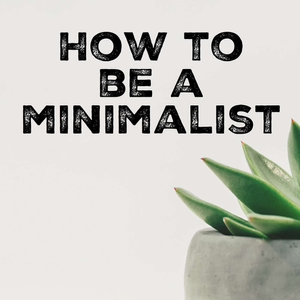
25 How do I become an author?
10/16/21 • 1 min
Quora.com
Here is the original article of Mayank Pahuja: https://qr.ae/pGVgDyTranscript:
I think you shouldn't waste any time and start reading as much as you can. I hope, when you say that you want to be an author it doesn't mean you just want to be another book writer, think about it. Anyone write a book, but how many of them write a good book? Do you want to write a book that turns into a movie soon? I hope not. I hope, you have found the path with clearer idea and it's not just the frustration of work which is making you to write something.
If I say I want to be author, first thing I would do is read all great authors, then write material which of my choice, which I think has meaning and carries the perspective that should match with my target audience. It's important to have distinctive style, because when you read books, you don't have authors face but with the words and lines you can recognize who's the author. So, when someone shows you a sentence you can easily say 'Hey! that's Wodehouse'
Most important thing is discipline. Although, it varies from individual to individual but the golden rule is to set the target of writing every day. It doesn't matter if you write 500 or 5000 words. More you write, you will understand the flaws, you will come closer to idea of your plot or story. You will be comfortable with the words.
And last, be comfortable with the language you are writing.
Quora.com
Here is the original article of Mayank Pahuja: https://qr.ae/pGVgDyTranscript:
I think you shouldn't waste any time and start reading as much as you can. I hope, when you say that you want to be an author it doesn't mean you just want to be another book writer, think about it. Anyone write a book, but how many of them write a good book? Do you want to write a book that turns into a movie soon? I hope not. I hope, you have found the path with clearer idea and it's not just the frustration of work which is making you to write something.
If I say I want to be author, first thing I would do is read all great authors, then write material which of my choice, which I think has meaning and carries the perspective that should match with my target audience. It's important to have distinctive style, because when you read books, you don't have authors face but with the words and lines you can recognize who's the author. So, when someone shows you a sentence you can easily say 'Hey! that's Wodehouse'
Most important thing is discipline. Although, it varies from individual to individual but the golden rule is to set the target of writing every day. It doesn't matter if you write 500 or 5000 words. More you write, you will understand the flaws, you will come closer to idea of your plot or story. You will be comfortable with the words.
And last, be comfortable with the language you are writing.
Previous Episode

24 Why are comic books written only in capital letters?
It’s not a universal rule, but it is the neutral place from which comics lettering begins creatively and for the audience. I am not familiar enough with the origin. However, lettering by hand is labor intensive, consistency & clarity are rewarded and a foundation in communication is essential.
If you are tasked with lettering by hand and you want it to be consistent, to keep the readers eye flowing through the work, you had better make it as easy on you and the reader as you can. Comic publishing came out of the tradition of sweat shops and production speed was critical. If you add serif to a font it can help with readability, as does proper use of capital and lower case letters. Cursive works to add fluidity and character. However, all three are more labor intensive, especially if you are looking for consistency.
In addition, each has the potential to undermine the arts own use of line quality. The lettering is there to help the reader understand the story, not to slow the pace of the story. A legible underwhelming consistency serves this purpose.
If the letters look the same most of the time, are quickly executed, tend to serve the pace and readability of a comic, then it creates aspects of a visual lexicon. Fluency in reading comics is about reading Sequential Art and this comes with a verity of elements. One being the letters. As soon as you set up the unassuming norm that doesn't effect the reader much, you can do things to the lettering to effect the storytelling.
By making a word in BOLD it creates an accent, weight or metaphoric opportunity. You can change the word balloon to infer new information. You can color code the word or ballon to create identity connections with characters. You can add in serif, lower case or cursive to introduce layered context. You can also completely create new typography that serves sound effects or titles.
The more you use these elements the more they loose their effectiveness in telling the story. If you are sparing (like with most of comics other visual elements) the more power and clarity they hold for the reader and the quicker you can produce a comic by hand.
Many comics lettering is now done on the computer. This changes the laborious aspects some (not as much as we hope sometimes), but it doesn't change the lexicon already established much and the need for clarity and carful use of visual elements.
It may not be the perfect font, but it’s a practical tradition that will remain, as long as it serves the story, audience and creative process.
I hope someone knows the origin of who and why.
From quora.com
vocabulary:
labor intensive (time-consuming, burdensome, laborious)
the tradition of sweat shops
capital and lower case letters.
Cursive works to add fluidity and character.
line quality
not to slow the pace of the story.
legible (readable, clear)
Fluency in reading comics is about reading Sequential Art and this comes with a verity of elements.
As soon as you set up the unassuming norm that doesn't effect the reader much, you can do things to the lettering to effect the storytelling.
By making a word in BOLD it creates an accent, weight or metaphoric opportunity.
You can change the word balloon to infer new information.
Next Episode

26 How do I read faster?
Quora.com
Transcript:
I'm not an amazingly fast reader, but I'm faster than most of the people I know. My reading speed allows me to go through about 2 books a week (averaging 200 pages), and that's on top of a 15-credit summer quarter and a part time job.
Looking back, I've come to realize that the sheer act of reading every day was the single most beneficial factor in quickening my speed and enhancing my comprehension. In everything I tried, reading for enjoyment was the most substantial factor in helping me become a better reader. It sounds over-simplified and just like common sense, but it works. I would compare reading to a sport or playing music: practice improves your efficiency and effectiveness. Since we make use of our reading abilities daily, however, it's much harder to get out of shape or lose some of our capabilities. One of the best things you can do to read faster and think better is find some books that you really love and read as much as you can. For me, those books were pop-psychology, business, and self-help books.
As far as techniques go, I watched this short video a while back about how to read faster. It seems that most people don't move far past the stage that we learned to read in. Think back to elementary school: this was the time when you sounded out the letters and read aloud. I feel like most people continue to read this way by using their auditory/vocal systems to process words. The more advanced and much faster way has to do with using your visual systems. How is this distinction achieved? By a simple exercise. Find any sort of material to read and as you read, and as you read it repeat some sort of basic sequence. Count "1, 2, 3" or "a, b, c" repetitively as you read. What this does is separate what you say from what you see. It doesn't matter that you don't comprehend anything at first, just that you are practicing that separation. With enough practice, your mind should be able to automatically separate the two and begin using your eyes (not your mouth) to read.
I'd like to see what others think because I have very little experience with this and don't know if there's any scientific evidence to back what I said.
If you like this episode you’ll love
Episode Comments
Generate a badge
Get a badge for your website that links back to this episode
<a href="https://goodpods.com/podcasts/quora-knows-best-for-english-learners-and-others-197858/25-how-do-i-become-an-author-19488540"> <img src="https://storage.googleapis.com/goodpods-images-bucket/badges/generic-badge-1.svg" alt="listen to 25 how do i become an author? on goodpods" style="width: 225px" /> </a>
Copy




